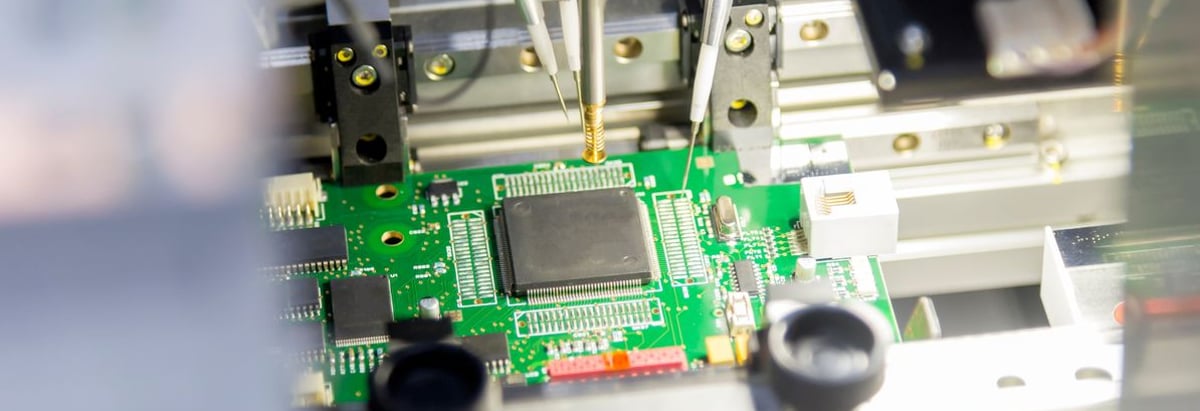Stock Analysis
- Hong Kong
- /
- Semiconductors
- /
- SEHK:968
Xinyi Solar Holdings (HKG:968) Will Pay A Dividend Of HK$0.10

The board of Xinyi Solar Holdings Limited (HKG:968) has announced that it will pay a dividend on the 16th of October, with investors receiving HK$0.10 per share. This takes the dividend yield to 6.4%, which shareholders will be pleased with.
While the dividend yield is important for income investors, it is also important to consider any large share price moves, as this will generally outweigh any gains from distributions. Xinyi Solar Holdings' stock price has reduced by 38% in the last 3 months, which is not ideal for investors and can explain a sharp increase in the dividend yield.
View our latest analysis for Xinyi Solar Holdings
Xinyi Solar Holdings' Payment Has Solid Earnings Coverage
While it is great to have a strong dividend yield, we should also consider whether the payment is sustainable. Before making this announcement, Xinyi Solar Holdings was earning enough to cover the dividend, but it wasn't generating any free cash flows. In general, we consider cash flow to be more important than earnings, so we would be cautious about relying on the sustainability of this dividend.
Over the next year, EPS is forecast to expand by 58.3%. If the dividend continues on this path, the payout ratio could be 34% by next year, which we think can be pretty sustainable going forward.
Dividend Volatility
The company's dividend history has been marked by instability, with at least one cut in the last 10 years. Since 2014, the annual payment back then was HK$0.018, compared to the most recent full-year payment of HK$0.225. This works out to be a compound annual growth rate (CAGR) of approximately 29% a year over that time. It is great to see strong growth in the dividend payments, but cuts are concerning as it may indicate the payout policy is too ambitious.
The Dividend Looks Likely To Grow
With a relatively unstable dividend, it's even more important to see if earnings per share is growing. Xinyi Solar Holdings has seen EPS rising for the last five years, at 21% per annum. Xinyi Solar Holdings is clearly able to grow rapidly while still returning cash to shareholders, positioning it to become a strong dividend payer in the future.
In Summary
Overall, this is probably not a great income stock, even though the dividend is being raised at the moment. While the low payout ratio is a redeeming feature, this is offset by the minimal cash to cover the payments. We would be a touch cautious of relying on this stock primarily for the dividend income.
Companies possessing a stable dividend policy will likely enjoy greater investor interest than those suffering from a more inconsistent approach. At the same time, there are other factors our readers should be conscious of before pouring capital into a stock. As an example, we've identified 1 warning sign for Xinyi Solar Holdings that you should be aware of before investing. Looking for more high-yielding dividend ideas? Try our collection of strong dividend payers.
New: AI Stock Screener & Alerts
Our new AI Stock Screener scans the market every day to uncover opportunities.
• Dividend Powerhouses (3%+ Yield)
• Undervalued Small Caps with Insider Buying
• High growth Tech and AI Companies
Or build your own from over 50 metrics.
Have feedback on this article? Concerned about the content? Get in touch with us directly. Alternatively, email editorial-team (at) simplywallst.com.
This article by Simply Wall St is general in nature. We provide commentary based on historical data and analyst forecasts only using an unbiased methodology and our articles are not intended to be financial advice. It does not constitute a recommendation to buy or sell any stock, and does not take account of your objectives, or your financial situation. We aim to bring you long-term focused analysis driven by fundamental data. Note that our analysis may not factor in the latest price-sensitive company announcements or qualitative material. Simply Wall St has no position in any stocks mentioned.
Have feedback on this article? Concerned about the content? Get in touch with us directly. Alternatively, email editorial-team@simplywallst.com
About SEHK:968
Xinyi Solar Holdings
An investment holding company, produces and sells solar glass products in the People’s Republic of China, rest of Asia, North America, Europe, and internationally.

